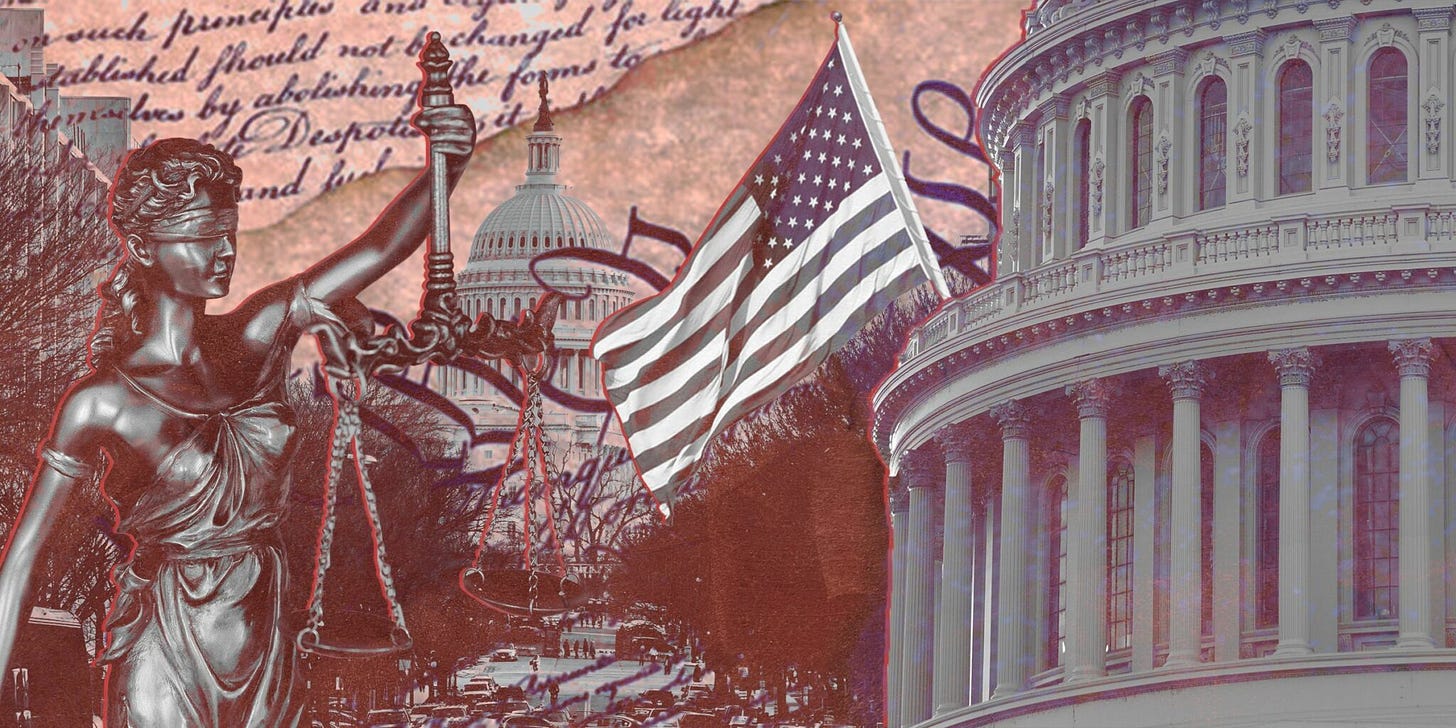Can We Find Unity with Strangers?
My online exchange with Yuval Levin about our elusive national unity

This month, I was invited to participate in an online forum at Law and Liberty. The principal essay, “Constituting Unity,” was authored by Yuval Levin, the director of social, cultural, and constitutional studies at the American Enterprise Institute and the editor of National Affairs. Yuval calls for Americans to reinvigorate their political institutions through a renewed understanding of the Constitution.
The editors of Law and Liberty then solicited three responses. The first, “Despite Deep Diversity,” came from Jim Stoner, a professor of political science at Louisiana State University. The second, “The Promise of the Bill of Rights,” came from Stephanie Slade, managing editor of Reason. I wrote the third response, “Unity in Our Liberties.” While I encourage you to read all of the commentary, in today’s post I want to highlight Yuval’s principal essay and draw from part of my response to it.
Yuval is one of the most important thinkers in the country today, which made me especially grateful to be included among the respondents to his essay. Although I often agree with his core ideas and arguments, I was less certain about some of his assumptions and prescriptions in this essay. In particular, I was skeptical about Yuval’s understanding about the nature of existing agreement among citizens in this country and his appeal to unity through federalism rather than to a shared commitment to civil liberties. In this post, I will focus on the former; next week, I will highlight a current First Amendment case that illustrates the significance of the latter.
Yuval argues that part of the “common foundation” that unifies and inspires us to act together in strengthening our political institutions is that “we aren’t strangers to each other.” I was unsure of this claim. In fact, I think we are something closer to strangers. Some Americans are quick to name an “us” against “them,” but this is only a loose and sometimes unhealthy sense of identity. And recent public discourse across political divisions certainly doesn’t make me think that we are friends. As I suggested in my response, “Maybe we are distant acquaintances trying to remember what we share in common.”
I also suggested that the challenges run even deeper than our estrangement across political differences because our political, civic, religious, and educational institutions contribute to our social isolation. As Yuval notes in his 2020 book, A Time to Build, we face a “crisis of connectedness” that runs throughout our major institutions. On his account, not only are we disconnected from our adversaries; too often, we are detached from our friends. And it is hard to forge community without connectedness.
I worry that our social isolation makes it harder to form people with the habits, dispositions, and capacities necessary to rebuild and sustain our political institutions. In “Constituting Unity,” Yuval suggests that effective government at both federal and state levels depends upon citizens formed in “core republican virtues.” He seems to presume that these virtues are formed through “civic action” within political institutions and by ordinary citizens engaging with those institutions.
But again, I am not so sure. We do not have many recent examples of elected or appointed officials exuding these robust republican virtues. And the work of ordinary citizens in activities like petitioning, canvassing, campaigning, and voting seems either too partisan or too episodic to do the difficult work of forming republican virtues.
So one of my main questions for Yuval is where these habit-forming opportunities might arise. I suggested in my response that we will find them, if at all, in our non-political institutions: our schools, churches, synagogues, mosques, and neighborhood associations. Unfortunately, most of these institutions are also underperforming.
Earlier this year, Yuval joined me in St. Louis for a conference and dialogue about the importance of institutions and how we might strengthen them. In an earlier post, I summarized that dialogue and quoted Yuval’s closing comments to the audience:
I think it’s worth your while to think about institutional engagement not as a burden but as an opportunity, as an answer to the question you ask yourself in the moments when you're most worried about the future. That question very often has to do with the sense that things are out of control if you have no part to play. In fact, for all of us there is some set of institutions where we have a role where we play some part or could. Ask yourself where that is. What’s the set of institutions you really want to be identified with? Find ways to devote yourself to their betterment. There are ways to do that. They don’t have to be huge. You don’t have to give up your life and make everything about those. But find ways to draw happiness and draw meaning out of an institution whose fate you feel like is tied up with yours. Make it better in small ways. Just ask yourself, given the role that I’ve got there, what should I be doing in life? It's a question we can all ask. It’s an answer we can all give. Those small commitments really matter.
That advice still sounds right to me. Importantly, it focuses on the agency of the people who comprise our institutions. Forming those people will be just as crucial—and just as challenging—as forming a polity.
This dialogue at Law and Liberty is ongoing. Next week, Yuval will respond to the essays from Jim, Stephanie, and me. Stay tuned!



Thanks, John, for a thoughtful and reasoned opinion. It does seem as though a lot of us act as strangers to each other.